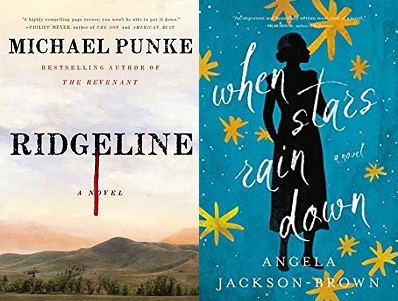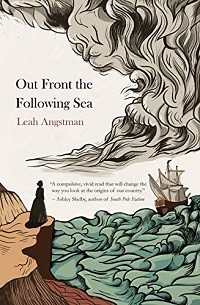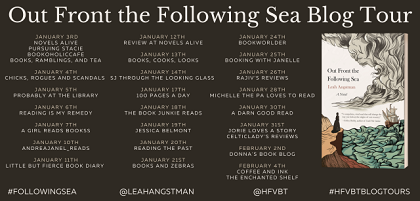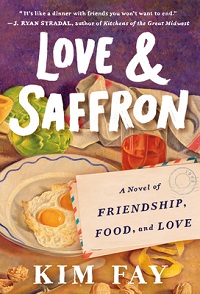I'm happy to welcome Australian novelist Margaret Walker for a guest post about the background to her latest historical fiction work, Through Forests and Mountains (Penmore, 2021), which focuses on the Partisan women in WWII Yugoslavia.
~
In Love, In War
by Margaret Walker
How many women do you know who commence an historical novel based on their shoe size? Or their head circumference? Or their height? When I was growing up in Sydney in the 1960s, all three were expected to be British, and the British were small.
I was an eight-pound twin. I was adopted at birth and my mother came from Yugoslavia, the home of large people.
I grew up hating shoes. All they ever did was hurt. I hated shopping. Nothing fitted, and I developed an early and permanent fixation about my size.
Then, in 1970, something wonderful happened. My adoptive mother told me about the women of the Yugoslav Partisans in World War 2 who had battled the Nazis alongside the men. She did it to console me – even at ten I could tell that – and with that heightened sense of romanticism that novelists are born with, I just knew that my biological mother had hurled grenades at cowering Germans. I felt a fierce pride that half of me had been involved in the Struggle for National Liberation, as it was called and, from that day, I was on a mission to teach my small-footed, small-headed world the history that justified every pair of shoes that had ever given me blisters. But first I treated my disproportionate self to a tour of the old Yugoslavia where, at long last, I met women my size.

My first novel
His Most Italian City, about the persecution of my birth mother’s family under Mussolini, was published by Penmore Press in Arizona in 2019 and, with the confidence that gave me, I began to write
Through Forests and Mountains about the Partisan women. In 2015, Jelena Batinić published a fabulous book called Women and Yugoslav Partisans, and in 2018 I bought a book of Partisan poems in Croatian, of which I translated about forty. "A Woman Under Arms" by Franjo Mraz is my favourite:
Oh, my rifle, I will never part with you!
You will be with me at the end of my wrist until the last day
Protecting the paths of freedom along which the conquered are moving.
Tremble, look, and listen to the woman warrior, the woman partisan!
So, like me, you want to tell the world about your obsession? You are in distinguished company, and I suggest that two things are essential. One, make your readers care about your protagonist from the first page. You must carry them along emotionally. Two: be such a sensational writer that you can make your reader passionate about carburettors, sushi and Tibetan Mastiffs.
Not interested in the Yugoslav Partisans?
I’m going to make you interested. Great style, emotional characters, racy plot, and a seriously nasty villain.
In the planning stages, I considered what the premise of a novel about women fighters ought to be and, after a few false starts, I decided to tell the story of a man who, in the ordinary course of his life, has trouble with women. He’s mechanical. He’s hopeless at female games. His love life is a series of brief, shallow relationships. However, as the war progresses, he finds himself in a position where he is forced to deal with women fighters.
How he responds to this provides the conflict, and conflict is important in novel writing. It gives the reader interest. In order to resolve it, I toyed with the idea of introducing romantic elements between him and the female protagonist.
Here I encountered a problem.
The Yugoslav Partisans were not allowed romance. The Anti-Fascist struggle was too important. The women who fought became hardened until they were almost like eunuchs. Their periods stopped. If they had children, they left them in the care of others and went off to fight.
Then I discovered the poems of Josip Cazi, a political commissar with the Partisans. As I read his verses, a picture emerged of a soldier whom I imagined might ‘lay his rifle tenderly next to hers’. So many of his poems were about his relationships with women, and their style is remarkably sentimental for wartime.
‘Jelice, my apple girl in blue. My partisan rose with the wild hair in the blushing dawn, in pearls of dew. My small hero.’
If he can do it, I can do it, I thought. (And, despite the rules, there must have been some fun and games amongst the Partisans because Jelena Batinić includes a quote from a German who observed that many of the women were pregnant.)
From that moment, my male protagonist was doomed to be smitten, poor fellow, and I hope I have made this clear to the reader from the beginning of the novel. By the time my manuscript assessor suggested that I might like to develop my dot-pointed romance, the horse had bolted, and honestly it was so much fun to write that I almost considered going in for the whole Mills and Boon thing – Her Gun at his Heart, A War on More Fronts Than He Anticipated, Surrender! – and so forth.
'I have spoken with the commissar,' Anton began, 'who has given us permission to marry. If you'd like,' he added.
'Oh...' said Mara and put a hand to her lips. 'Oh.'
Anton waited for her to say something else. When she didn't it was obvious, even to him, that her mind had not been on love.
In an effort to emphasise to her the uniqueness of the privilege granted them he said, 'They don't generally allow it.' Still no reply. He added desperately, 'The commissar's reply ran along the lines of what he thought would be in my best interests, or rather, you understand, our best interests.'
'I understand,’ said Mara.
'What he meant was, I can't go back to sea, so...'
'Marriage might be a sweetener?'
'Well, yes, I expect you could put it like that.’
She started to laugh. That thoughtless, girlish laugh that had so often wounded him. He felt lonelier than ever. He was aware, by then, that he had blown his chance of getting her that little bit closer to him for a longer time, instead of always being part of an army on the move. What might happen tomorrow? Where would they be sent? When would he see her again? What sort of struggle against the Axis powers might it be for him if he no longer had access to her heart? If only he could start again and ask her properly in a way that any young woman would like to be asked. But had he? No. He’d just done it his way, as usual.
But she stopped laughing and looked up at him fondly.
'Of course, I'll marry you, Anton,’ she said. ‘What would I do if you weren’t here?'
Note: Quotations from the poems, translated by Margaret Walker, are from Po Šumama i Gorama, Pjesme Boraca Narodnooslobodilačkog Rata [Through Forests and Mountains, poems of the fighters in the war of national liberation], published in Zagreb in 1952.
~
Margaret Walker is a teacher. She has a Bachelor of Science degree from the University of Sydney, and diplomas in Education and Professional Communication. Her short stories have been published in Australia and England. Visit her author website at: https://www.mwalkeristra.com.














